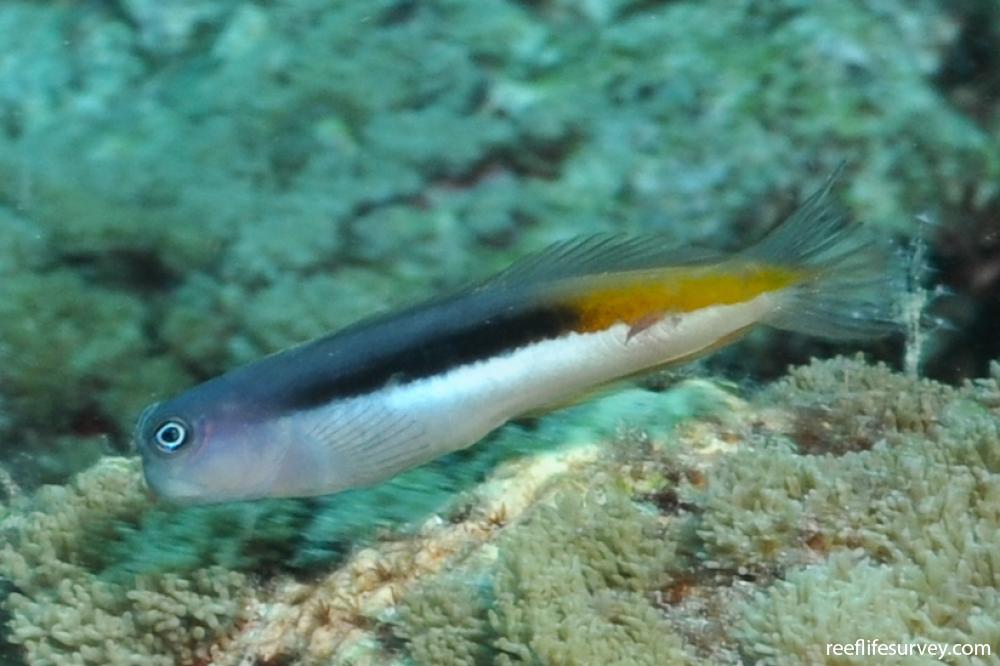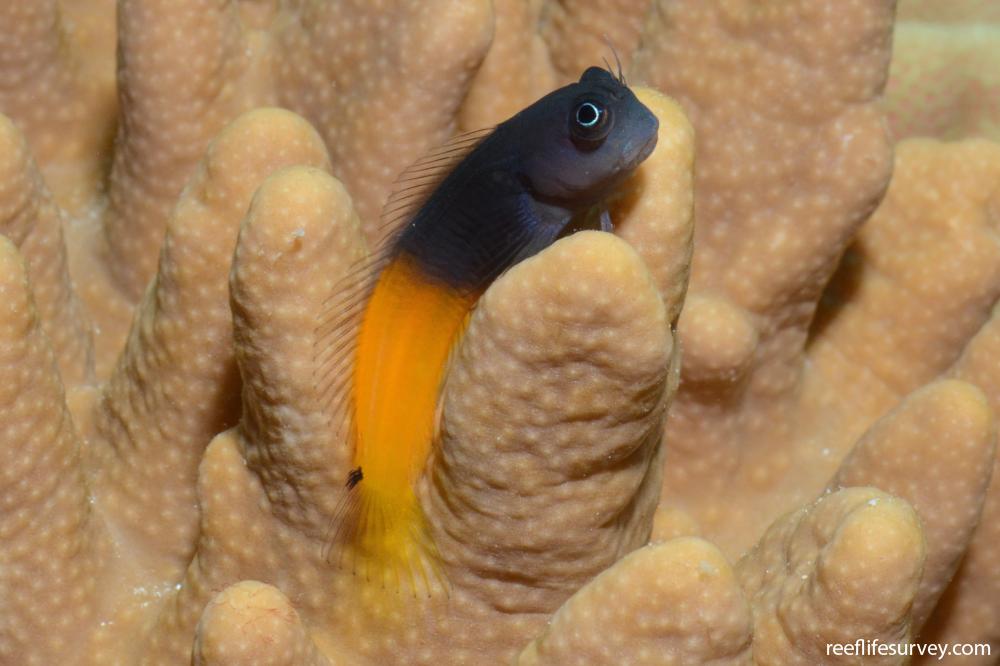Ecsenius bicolor
Bicolor blenny | Two-colour Combtooth Blenny | Two-coloured Blenny | Two-tone Combtooth BlennySimilar Species
Same Genus
Distribution
Tropical Indo-Pacific
Description
Variable in colour but most commonly grey front half of body and yellow/orange rear half. Other common colour forms are grey head and upper body grading to yellow towards rear with a white underside; yellowish-green head and fore-body grading to grey rear. All variations have dark eyes with silver irises, a pair of long straight cirri between, and a light pink arc behind and beneath each eye.
Information
Max Size: 11 cm
Sea Temperature Range: 22.2-31.4°C
Depth: 1-25m
Habitat Generalization Index: 16.4
Also referred to as the SGI (Species Generalisation Index), this describes the habitat niche breadth of the species. Species with values less than 15 are found in a relatively narrow range of reef habitat types (specialists), while those over 25 may be found on most hard substrates within their range (generalists). Learn more here.
Conservation and Rarity
IUCN Status: Not Evaluated
Occurrence: Common (23.8% of sites)
Occurrence describes how often the species is found on surveys within its distribution. It is calculated as the % of reef sites surveyed by RLS divers across all the ecoregions in which the species has been observed
Abundance: Few (5 per transect)
Abundance is calculated as the average number of individuals recorded per RLS transect, where present.
Edit by: Joe Shields































![Ecsenius sp. [black and green]](https://images.reeflifesurvey.com/1/species_ae_68eed5597db8f.w400.h266.JPG)




